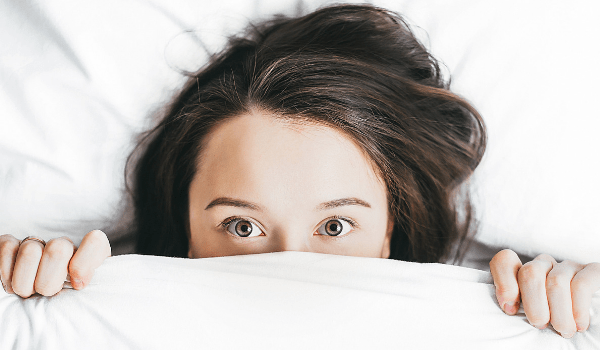We’ve all heard the phrase, “get your beauty sleep,” but why do they call it that? And, does the amount of sleep you get really affect your skin? The short answer is, yes. Lack of sleep can affect your entire body, including, your skin. But exactly how does sleep affect your skin? Well, in several ways.
Why is it called “beauty sleep?”
It’s called “beauty sleep” because sleep helps your skin heal from the day and any skin damage that may have occurred. When you sleep, your skin gets a chance to restore and improve itself back to a healthier state.
Let’s find out more.
How does sleep affect your skin?
There are many ways that sleep, and lack thereof, can affect your skin. Here are 6 main ways that lack of sleep affects your skin.
- Premature wrinkling and sagging of the skin
If you are consistently lacking in the beauty sleep department, you could end up with premature wrinkling and/or sagging of the skin. This is due to the cortisol that is released when your body is lacking an appropriate amount of sleep. Cortisol can break down collagen, which is the protein that helps to keep your skin smooth.
- Lack of collagen production
Collagen is also produced while you are sleeping. So, if you’re skimping on beauty sleep, your body is not producing the collagen needed to keep your skin looking young but is also creating a chemical that breaks down what collagen is in your body.
- Duller and dryer skin
Lack of sleep can also cause extra dryness in your skin, which can make wrinkles appear deeper and can cause your complexion to look more dull. Additionally, our bodies increase the amount of blood flow to the skin while we sleep. So, if you’re not getting enough sleep, your skin complexion may look dull and ashen.
- Lower HGH production
Your body also produces human growth hormone (HGH) that helps to repair tissue damage while you sleep. If you’re missing out on your beauty sleep, your body is not producing enough of this hormone to repair damaged tissue.
- Interruption of your nighttime beauty routine
Not getting enough sleep can also hinder the results of your nighttime skincare products. If your body is not getting enough sleep, it focuses the small amount of beauty sleep you are getting to repair other parts of the body. With enough sleep, blood flow is more consistent throughout your body, helping to better absorb your anti-aging skincare.
- Dark circles and bags under your eyes
Two of the most common and widely known side effects of little sleep are the dreaded dark circles and bags under your eyes. While you may be able to quickly cover up these features with makeup, the best way to handle them is to get enough sleep. It may also help to use an extra pillow at night, elevating your head just a bit, to reduce swelling around the eyes and in the face.
Now you know what lack of sleep may do to your skin. However, you may still be wondering what’s considered enough beauty sleep.
How many hours is beauty sleep?
Seven to nine quality hours of sleep per night is ideal for “beauty sleep.” If you regularly get less than six hours of sleep, you may start to see some side effects on your skin. The good news is that increasing your beauty sleep by one to three hours per night can decrease the side effects within 24 hours. Plus, getting an extra one to three hours of sleep for a few weeks can drastically affect your skin’s appearance.
Tips for getting a good night of sleep
Here are some tips we recommend if you’re in need of a good night of beauty sleep:
- Try to stick to a sleep schedule as closely as possible. Being consistent helps your body regulate its wake-sleep cycle.
- Pay attention to what you eat and drink. Not only may these things affect your skin, but they can also affect your ability to fall and stay asleep.
- Limiting your naps is also important for regulating your sleep cycle.
- If you’re feeling restless when you try to fall asleep, add some exercise into your daily routine.
- Lastly, manage your worries. If you find yourself trying to fall asleep and can’t stop your thoughts from taking over, write them down on a notepad you keep beside your bed and come back to them the next morning.
While getting a full night of beauty sleep is one of the best things you can do for your skin, sometimes other skin issues appear that may be unrelated. We recommend speaking to your dermatologist for proper diagnosis and treatment.
Vujevich Dermatology Associates offers medical, surgical, and cosmetic dermatology from some of the most highly trained physicians and clinicians in the greater Pittsburgh area. You can reach our team at 412-429-2570 or visit our contact page to see all of our locations. You can also follow us on Facebook to see what’s new in the world of dermatology.

